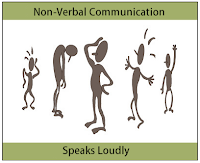"Thinking Errors" in Asperger's and High-Functioning Autistic Children
Philosophers have long known that your thoughts can be your own worst enemy. As Shakespeare once said, "There is nothing either good or bad, but thinking makes it so." Children and teens with Aspergers and High-Functioning Autism are especially vulnerable to such “thinking errors” due to a phenomenon called “mind-blindness." Resources for parents of children and teens on the autism spectrum : ==> How to Prevent Meltdowns and Tantrums in Children with Autism Spectrum Disorder ==> Parenting System that Reduces Defiant Behavior in Teens with Autism Spectrum Disorder ==> Launching Adult Children with Autism Spectrum Disorder: Guide for Parents Who Want to Promote Self-Reliance ==> Teaching Social-Skills and Emotion-Management to Children with Autism Spectrum Disorder ==> Parenting Children and Teens with High-Functioning Autism: Parents' Comprehensive Handbook ==> Unraveling the Mystery Behind High-Functioning Autism: Audio Bo

